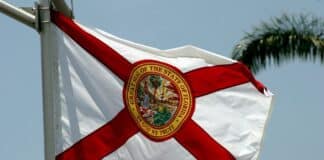President Donald Trump is set to sign a new executive order rolling back federal restrictions on commercial fishing in the Atlantic, fulfilling a campaign promise to support America’s fishermen and promote economic growth in coastal communities. The move revokes protections originally enacted by former President Barack Obama and later reinstated by President Joe Biden.
The executive order will reopen the Northeast Canyons and Seamounts Marine National Monument, a 4,913-square-mile area off New England’s coast that had been closed to commercial fishing since 2016. According to a White House fact sheet, the decision is part of Trump’s “America First Fishing Policy” aimed at restoring fairness to an industry burdened by overregulation and foreign competition.
“President Trump is committed to removing unnecessary restrictions on American fishermen in order to strengthen the US economy, support coastal communities, and restore fairness to an industry disadvantaged by overregulation and unfair foreign competition,” the fact sheet stated.
New Hampshire-born White House Press Secretary Karoline Leavitt hailed the move, calling it “GREAT news for New England’s Fishermen and Lobstermen, and another Promise Made & Promise Kept by President Trump!”
New Hampshire Governor Kelly Ayotte also praised the decision. “New Hampshire’s commercial fishing industry is a proud part of our heritage, and I am pleased to see President Trump remove burdensome regulations that have had a negative impact on our lobstermen and fishermen,” she said.
On the campaign trail in 2024, Trump pledged to support the industry, telling a crowd in Concord, “I don’t know much about fishing, but I love what they do, and they’re brave people. I’ll fight for the fishermen like never before.”
Industry support for Trump remains strong. Drew Minkiewicz of the Sustainable Scalloping Fund noted, “I have yet to see a Harris-Walz flag on a fishing vessel,” underscoring the political alignment of coastal fishing communities.
The rollback is expected to revitalize economic activity across the New England fishing industry, which has long argued that the marine monument’s restrictions unfairly hurt local livelihoods.





